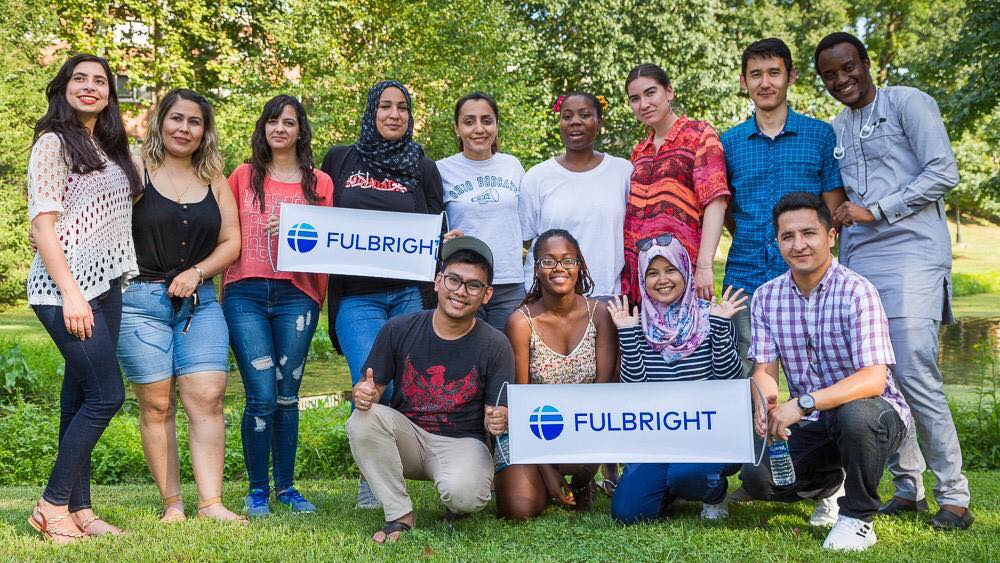Table of Contents
Introduction
Looking to study abroad but feeling overwhelmed by the number of program options available? No problem! In this blog post, we'll share our top 5 picks for the best study abroad programs.
Whether you're a student seeking to broaden your education or a recent graduate looking to gain international work experience, there's a program out there that's perfect for you.
But before we jump in, it's important for you to have a location or country in mind because it's still going to be your journey, and thinking about it won't hurt you.
What is Studying Abroad?
We covered this topic on our Blog series "Studying Aboard" so if you want more input on what it is and why studying aboard is so important I will recommend you to read through some of the Blogs. Either way we will quickly exlpain it to you.
Studying abroad means going to a different country to study at a college or university. It's a chance to live in a new place, see things from a fresh perspective, pick up a new language, and learn skills that can help you in your personal and professional life.
Great, now that we've covered the basics of studying abroad, let's take a closer look at some of the top destinations for international students.
The 5 Best Programs For Studying Abroad
Erasmus+ (Europe)
- Opportunities to study, train, and gain work experience in other European countries
- Wide range of academic fields covered
- Strong support network for international students
- Limited to European countries
- Scholarship amounts may not cover all expenses
- Some countries may have limited course options available
Fulbright (North America)
- Fully-funded scholarships for graduate study, research, or English teaching assistantships in the United States
- Wide range of academic fields covered
- Opportunities for cultural exchange and professional networking
- High Highly competitive selection process with low acceptance rates
- Restricted to U.S. universities and colleges
- Limited number of scholarships available
Science Without Borders (South America)
- Fully-funded scholarships for STEM fields in Brazil
- Opportunities to learn Portuguese and immerse in Brazilian culture
- Strong support network for international students
- Limited number of scholarships available
- Restricted to STEM fields in Brazil
- Limited opportunities for cultural exchange beyond Brazil
Japan Exchange and Teaching (Asia)
- Opportunities to live and work in Japan while teaching English
- Opportunities for cultural exchange and language immersion
- Strong support network for international participants
- Restricted to English language teaching positions in Japan
- Limited number of positions available
- Limited opportunities for academic study or research
Mastercard Foundation Scholars (Africa)
- Fully-funded scholarships for academically talented but financially disadvantaged students from Africa
- Opportunities to study at partner universities in Africa and other parts of the world
- Strong support network for international students
- Limited number of scholarships available
- Restricted to partner universities and academic fields
- Limited opportunities for cultural exchange beyond partner universities.
Which Criteria You Should Consider
All these countries are fantastic places to study abroad, but it's important to do your research to avoid turning your life-changing experience into a nightmare. To ensure that your time studying abroad is enjoyable, there are several key factors that you need to take into consideration.
1. Academic Fit
One of the most important factors to consider when choosing a study abroad program is how well it aligns with your academic goals. Look for programs that offer courses in your major or field of study, or that offer opportunities to take courses that complement your academic interests.
Additionally, consider the level of academic rigor of the program and whether it will challenge you academically.
2. Location
The location of your study abroad program can have a significant impact on your experience. Consider factors such as the climate, language spoken, cultural norms, and proximity to other countries or cities that you may want to visit. Think about what type of environment you thrive in and what you hope to gain from your time abroad.
3. Program Structure
Study abroad programs can vary in terms of their structure and format. Some programs are structured as traditional classroom-based courses, while others may include internships, research opportunities, or cultural immersion experiences.
Consider what type of program structure would best suit your learning style and career goals.
4. Support Services
Studying abroad can be a challenging experience, so it's important to choose a program that offers strong support services. Look for programs that provide on-site support staff, language classes, housing assistance, and other resources to help you adjust to life in a new country.
5. Cost
Studying abroad can be expensive, so it's important to consider the cost of the program when making your decision. Look for programs that fit within your budget, and consider the cost of living in the host country, as well as any additional expenses such as travel and insurance.
If you are on a low budget right now but still want to study abroad, check out these programs. Maybe there is something you will like.
In Conclusion...
In the end, it's up to you where you want your journey to go, and that's amazing. But hopefully, you will take some of our tips into consideration when choosing your destination.
Remember, if you need more tips about studying abroad, we have a full series on studying abroad where we cover topics like: How to choose your destination, make friends in your new city, and more!





